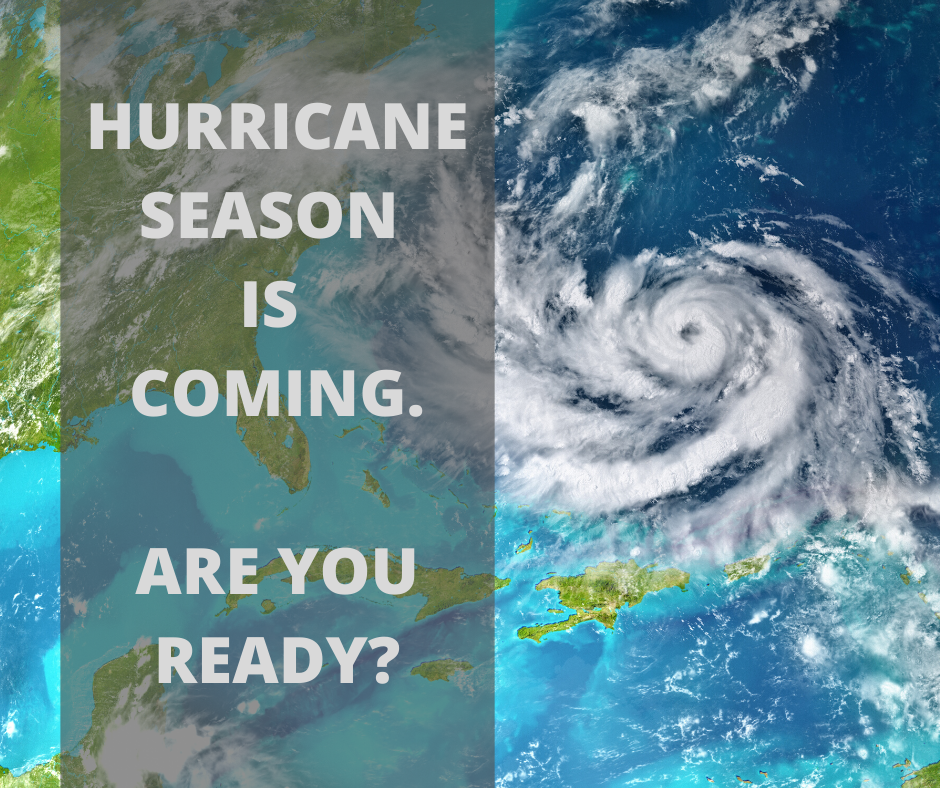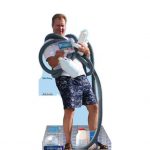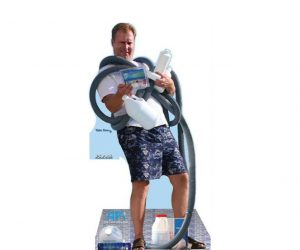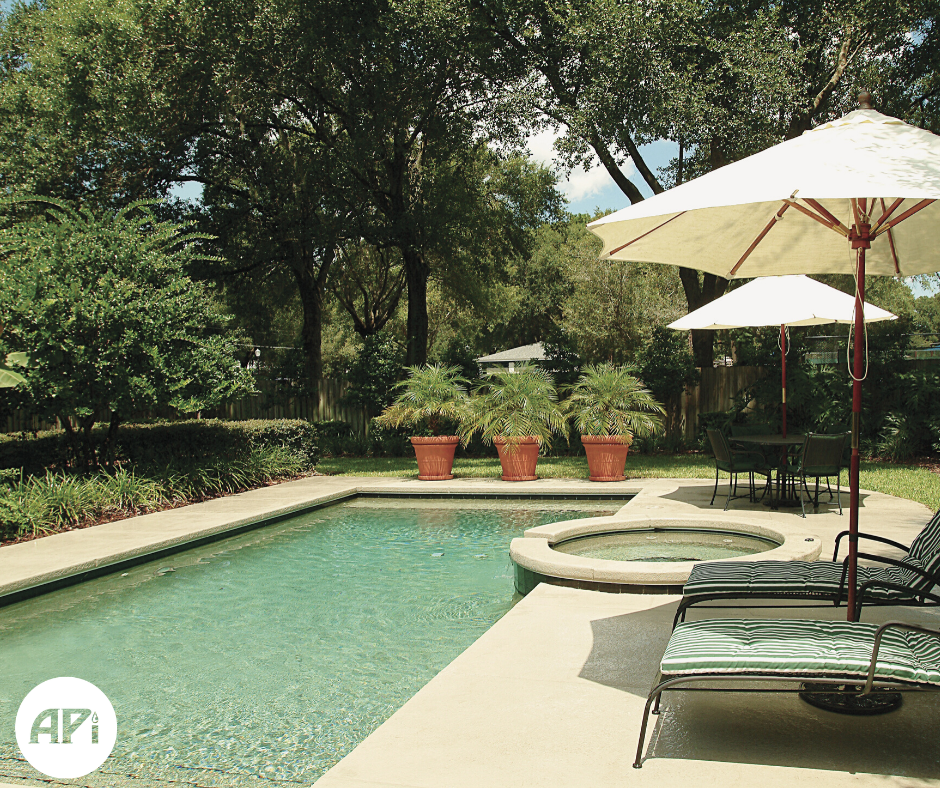
Thus far, 2020 has been…an adventure, to say the least. And now, for those of us who live on the Eastern and Gulf coasts, it is time to prepare for what is predicted to be a humdinger of a hurricane season. Experts are predicting as many as 16 named storms, 8 hurricanes and 4 MAJOR hurricanes. While we are hoping they are wrong, it is wise to prepare. For those of you who are pool owners, we have compiled a list of Frequently Asked Questions and answers on how to best prepare your pool and patio this hurricane season.
Q: I’ve heard that I should place my patio furniture inside my pool during a storm and/or hurricane.
A: We advise against this for a couple of reasons. The items could damage your pools liner and/or finish and can also cause staining. It is best to store these items in a shed or garage until the storm passes.
Q: Should I drain my above ground pool prior to heavy rains or storms?
A: No. Keeping sufficient water levels in your pool provides the weight needed to hold the sides and bottom in place during the storm. Your pool won’t blow away. On average, filled above ground pool weighs 10,000lbs!
Q: Do I need to do anything to my pools water chemistry before the storm?
A: Yes. It is strongly advisable to super chlorinate your pool water. Shock your pool in your typical manner.
Q: How do I prepare my deck and patio? What about my screen?
A: Remove any panels or doors that may be loose or not as secure. You can also create a vent in your screen frame which will allow relief from high winds and help avoid some damage.
Q: What about my chemicals? How should I store them?
A: While is always advisable to store chemicals in a well ventilated, dry environment, it is even more important to do so during hurricane season. Be sure they are in a high, dry and safe area. Some chemicals can create toxic gasses or even fire when they come into contact with others.
Q: Should I turn off my electrical and automatic systems?
A: Without question, yes! Lightening and electrical equipment are not friends. You will want to be sure all equipment is turned off at the circuit breaker prior to the storm.
Q: When the storm is over, do I need to test my water?
A: Yes. The debris that landed in your pool and heavy rain can throw off your levels.
It goes without saying, your safety and that of your family is first. So do as much pre-storm planning as possible. Removing patio furniture and umbrellas, pool toys, and any loose limbs that are in or around the pool and patio area can save you time and money when the storm finally passes. Be sure to stock up on hurricane essentials such as flashlights, water, and candles. I’d say toilet paper, but don’t want this blog to be the reason for the next national shortage!
These are just a few of the most common questions asked regarding pool care during this time of year. If you have a question that we didn’t answer, feel free to text or call us at (877)274-7261. You can also email us at This email address is being protected from spambots. You need JavaScript enabled to view it.
For more hurricane preparedness information, check out this information from our friends at chooseenergy.com https://www.chooseenergy.com/news/article/hurricane-preparedness-guide/
Until we meet again, stay safe and enjoy your pool!













